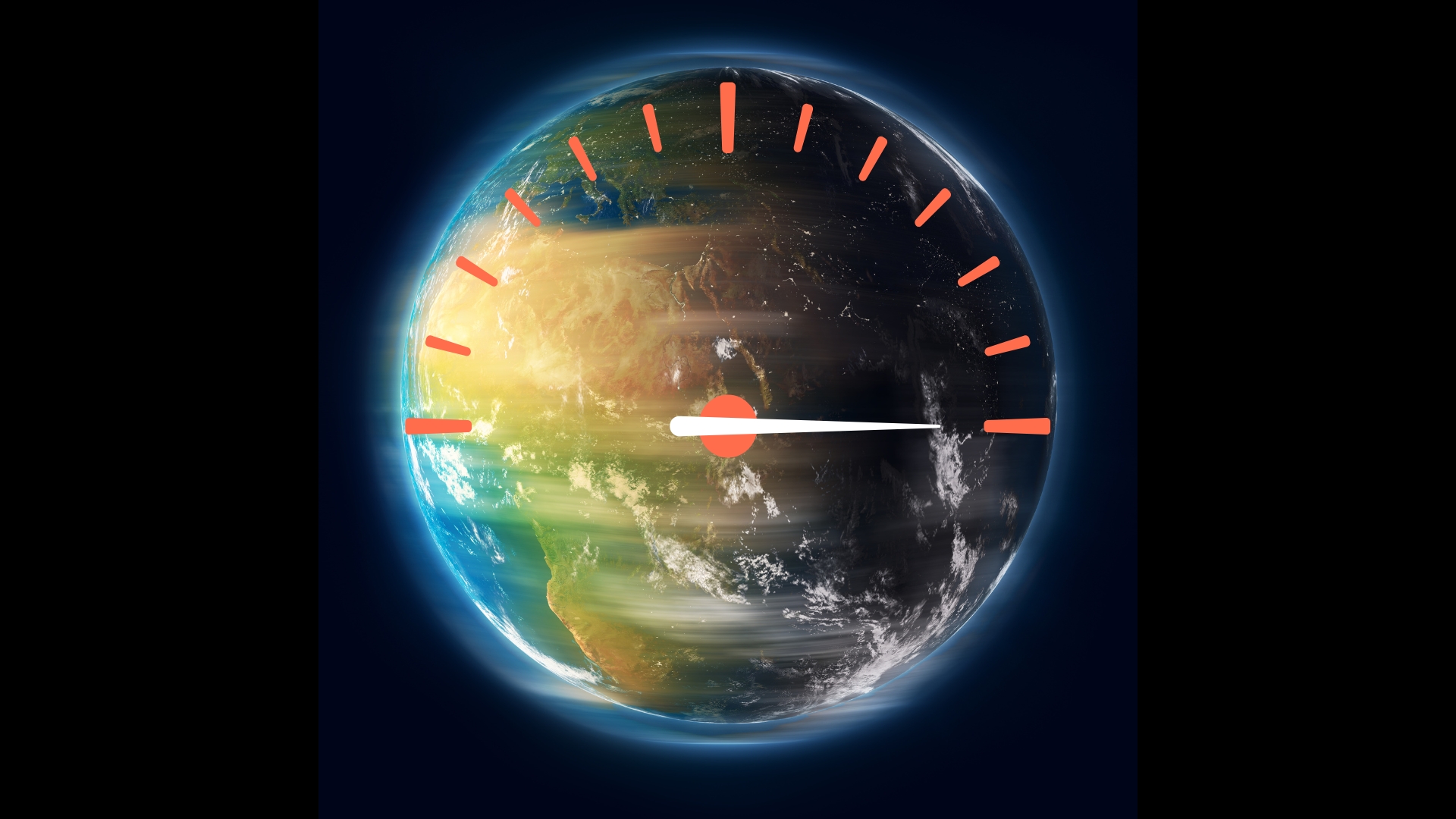See what’s trending right now
Space Explorationin Science
7 hours agoScientists are thrilled about interstellar comet 3I/ATLAS, a rare and ancient visitor passing through our solar system, offering unique insights into cosmic history.
Science
Earth just had a freakishly short day, but the fastest day of the year is yet to come
neutralScience
On July 9, the Earth spun a little faster than usual, making the day slightly shorter—but hold onto your hats, because scientists say we’ll see even quicker days later this summer. Tiny wobbles in Earth’s rotation, caused by everything from ocean currents to molten core shifts, are behind these microscopic speed changes.
Editor’s Note: This isn’t about to mess up your schedule—we’re talking milliseconds here—but it’s a quirky reminder that our planet isn’t just a static rock. These subtle shifts help scientists fine-tune everything from GPS systems to climate models, and they’re a humbling nudge that even time itself isn’t perfectly set in stone.
Did you feel it? Earth just had one of its shortest days ever and 2 more are coming
neutralScience
Turns out Earth has been spinning a little faster lately—so much so that June 29 was one of the shortest days ever recorded, clocking in 1.59 milliseconds under 24 hours. And according to scientists, two more ultra-short days might be coming soon. While you definitely didn’t notice it (blink and you’d miss it, literally), atomic clocks did. This isn’t a crisis, but it’s a quirky reminder that our planet’s rotation isn’t as steady as we think.
Editor’s Note: Earth’s spin isn’t perfectly consistent—it speeds up and slows down due to factors like ocean currents, wind, and even earthquakes. While a millisecond here or there won’t mess up your coffee break, it does matter for ultra-precise systems like GPS and satellite tech. Plus, it’s just cool to remember that even the planet itself sometimes can’t stick to a schedule.
Why is the Earth spinning faster? Is time speeding up? Australia’s experts give us their second opinion
neutralScience
Scientists have noticed that Earth’s rotation is speeding up slightly, shaving a tiny fraction of a second off the usual 24-hour day on three specific dates this July and August. While you won’t feel it in your daily life, atomic clocks might pick up the difference. Experts are weighing in on whether this is a fleeting quirk or part of a larger trend—and no, time isn’t actually "speeding up" in a way that’ll mess with your schedule.
Editor’s Note: It’s a quirky reminder that our planet isn’t a perfect metronome—tiny wobbles in rotation happen due to shifts in Earth’s core, oceans, or even climate. While it won’t change how we experience time, it’s a fascinating glimpse into the forces that keep our world ticking (or not-quite-ticking at exactly 86,400 seconds). Plus, it’s a fun excuse to say, “See? Time does fly!”
Why World Pulse Now?
Global Coverage
All major sources, one page
Emotional Lens
Feel the mood behind headlines
Trending Topics
Know what’s trending, globally
Read Less, Know More
Get summaries. Save time
Stay informed, save time
Learn moreLive Stats
Articles Processed
10,089
Trending Topics
118
Sources Monitored
211
Last Updated
3 hours ago
Live data processing
How it works1-Minute Daily Briefing
Stay sharp in 60 seconds. Get concise summaries of today’s biggest stories — markets, tech, sports, and more
Why World Pulse Now?
Global Coverage
All major sources, one page
Emotional Lens
Feel the mood behind headlines
Trending Topics
Know what’s trending, globally
Read Less, Know More
Get summaries. Save time
Stay informed, save time
Learn moreLive Stats
Articles Processed
10,089
Trending Topics
118
Sources Monitored
211
Last Updated
3 hours ago
Live data processing
How it works1-Minute Daily Briefing
Stay sharp in 60 seconds. Get concise summaries of today’s biggest stories — markets, tech, sports, and more


